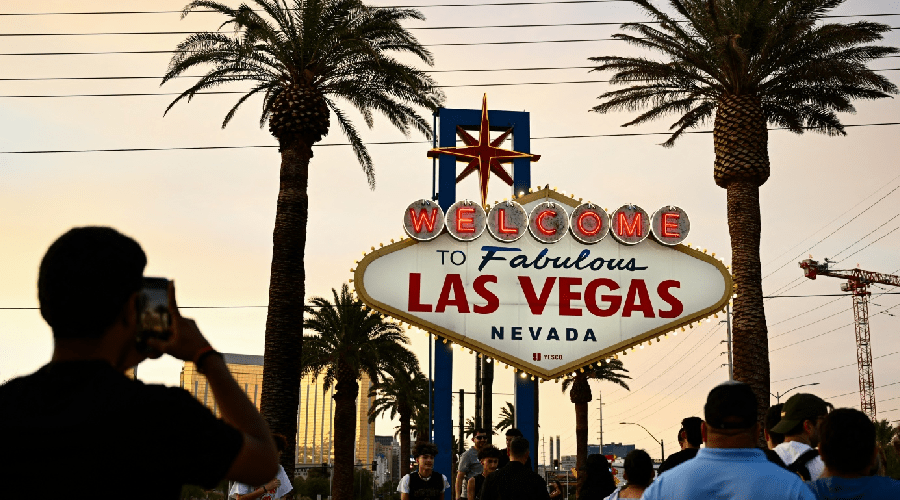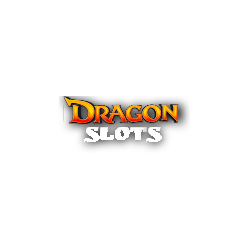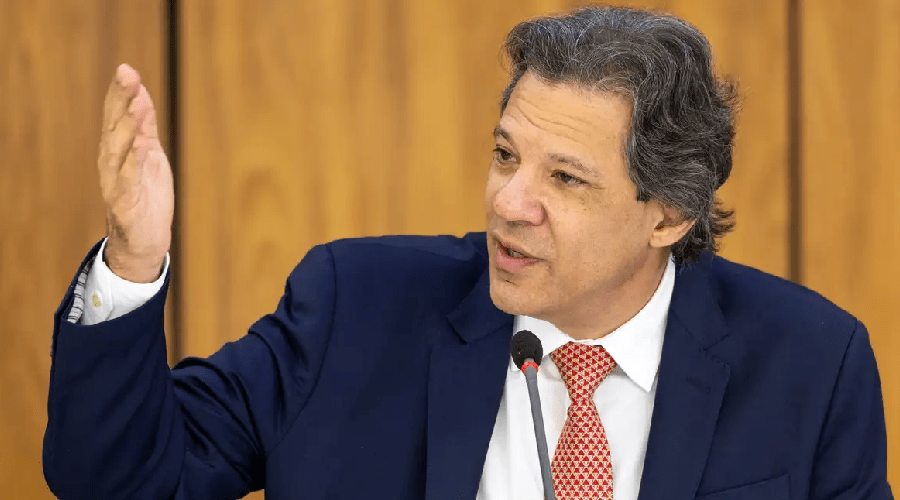Could less strict rules for salons help Las Vegas' tourism?

Nevada is about to make big changes to the rules that govern salons. Will this help Las Vegas deal with the problems that are hurting tourism?
A decline in tourists in Las Vegas
The Nevada regulatory workshop on salon play on Wednesday, especially in Las Vegas, was important for two reasons: a big decline in visitors and more inspection of anti-money laundering.
Every month this year, the number of people who visit Las Vegas has gone down compared to the same month last year. Wynn, MGM, and Resorts World have all had to pay millions of dollars in AML fines in 2025. So, updating the rules at salons could help with both of these problems.
In gambling terms, "salons" are private gaming rooms that are separate from public casino sections, such as high-limit areas. Before 2001, Nevada law said that no private gaming could happen. However, that year, changes were made to the legislation to allow for the construction of salon regulations.
Mike Dreitzer, the chair of the Nevada Gaming Control Board, said on Wednesday that this was done to bring high-value clients to the state at a time when the economy was shaky after 9/11. The original criteria for salons were very strict, requiring participants to have at least $500,000 in credit or a deposit.
This barrier was so high that only the biggest casinos on the Las Vegas Strip could handle them. That is still mostly true; there are still no salons in northern Nevada. They can only legally work in "resort hotels," which in Nevada means hotels with gaming, more than 200 rooms, and at least one bar and restaurant. Operators must fill out an application and get approval for a salon licence.
The Great Recession's economic uncertainties led regulators to decrease the threshold to $300,000 in 2008. Then, in late 2024, the NGCB had another round of talks about salons. This was because of uncertainties about the economy and the need to keep Nevada relevant as casinos grew in other places. Last December, a workshop was conducted to start the process of changing salon rules for the third time.
A number of adjustments to salons that are suggested for approval
The board presented a draft change to Board Regulation 5.200 on Wednesday that included comments from that hearing. After two more hours of discussion with stakeholders, the board unanimously suggested a number of improvements, some of which are:
Reducing the minimum deposit/credit limit to $20,000.
Giving operators the chance to set their own minimums based on their proven experience in the salon.
Making poker a game that can be played in salons.
Setting a minimum buy-in of $20,000 to start a poker game, with each player needing to buy in for at least $10,000.
Extending the time that a salon customer's visitor can play in the salon without the guest being there from six to twenty-four hours.
On September 25, the Nevada Gaming Commission will look at the changes and decide whether or not to accept them.
Possible solution to the reduction in Las Vegas visitation and AML problems
Stakeholders say that if Nevada casinos can provide private gaming more freely, they might get more clients who used to go to other places for those kinds of experiences. Also, salons are safer than the main floor, and the gameplay would be watched more closely.
Casinos have pushed for optional minimums to make room for other business prospects. Imagine a celebrity walking through Las Vegas. They want to play a bit, but they don't want to be bothered on the main floor or go through the severe salon financial checks that are in place right now. The CEO of a convention may want to engage certain attendees who aren't high-rollers, but the casino wants to thank them for their patronage and provide them a private salon.
If the rules were less strict, more of those kinds of events could happen. In principle, this might bring in more money and repeat visits from high-value clients to help Las Vegas tourism, which has been falling.
Finding a balance between working together and enforcing rules in Nevada casinos
But the board needs to weigh those chances against what it can really do to enforce the rules. Opening the floodgates and not setting a minimum could make things worse for the state's stock of regulatory resources.
Dreitzer agreed that operators' excitement is "well taken," but he kept stressing the need for balance. He was respectful of Kristi Torgerson, the board's enforcement chief, who pushed for at least $10,000.
Dreitzer told everyone there, "You have to respect the fact that there's a bit of an unknown here." "And I know we have checks along the way, but you know how it goes. At every level, there is always a drive to get the lowest number.
Casinos want new games to help them catch up with spending in Las Vegas.
There is more pressure on the industry to keep up what has been a record-breaking period of performance since Covid. The state achieved three records for gaming revenue in a single fiscal year after 2020, however in FY25 it was a little bit lower (-0.79%). The Strip, on the other hand, was down 3%, which was the worst of the state's big marketplaces.
Las Vegas has put more and more money into entertainment that isn't gambling, including sports. The city has added the Aces (WNBA), Raiders (NFL), and Golden Knights (NHL) teams in the recent ten years. The Athletics (MLB) will join them in 2028. The Formula One Las Vegas Grand Prix happens every year and is also booked through 2027.
Virginia Valentine, president and CEO of the Nevada Resort Association (NRA), told the board that "this evolution from the gaming capital of the world to the sports and entertainment capital of the world has changed the definition" of what a high-value consumer is. To ease worries about a "proliferation" of salons and possible difficulties, she said that the board must approve any new salons or changes anyhow.
"Regulatory gold standard is Nevada." Valentine remarked, "We also want to be the best in the world at gaming."
Also on Wednesday, in favour of relaxing salon rules, were:
Charlie Stone is the executive vice president of marketing and operations for Wynn Las Vegas casinos.
Chandler Pohl is the vice president and lawyer for MGM Resorts.
Joe Lupo is the president of Hard Rock Las Vegas, which is being built right now.
Wynn and MGM were two of the three AML fines given out this year, as was indicated. This month, Hard Rock fired Alex Pariente, a high-ranking official, because of an AML issue at the company's casino in the Dominican Republic.
Poker in salons could help stop the downturn in Las Vegas visitors.
that was important that poker was added as a salon game, and the NRA worked hard to make that happen.
Valentine said on Wednesday, "We know that there are card games going on in other states and maybe even here." "Those card games are going on behind closed doors, if you will. We are calling for things to be more equal because that is what we are up against.
It was allowed, albeit with certain stricter rules. Before a salon poker game can start, all players must go through financial checks, not just the main customer. The board also preserved the $10,000 buy-in requirement per player, even though the NRA wanted one player to be able to pay for the whole $20,000 table minimum.
Valentine told iGB that he was happy with both the current and prior boards for "reviewing the matter and listening to the industry" to make new rules that "meet today's environment."
"The proposed rules that will be sent to the Gaming Commission strike a balance between what the industry needs and what regulators need." Valentine argued that is very important for making any public policy work. "We're looking forward to talking with the Gaming Commission."
Valentine is right that Nevada casinos have to compete with a big legal and illicit poker market, especially in California, which is next door. There are both tribal casinos and regulated card rooms in the state where you can play poker legally. It is also a centre for high-stakes underground games because it has a lot of rich people and celebrities.
In July, six people, including former NBA player Gilbert Arenas, were charged in an illegal poker ring bust. It is said that the enterprise worked out of Arenas's estate in Encino and was linked to Israeli organised crime.
Policies about chips already altered this summer.
Under Dreitzer's leadership, which began in late June, poker looks to be a major focus for the NGCB. The game can be a target for unscrupulous people because players can trade chips and cash back and forth with less casino involvement than in other games.
In the middle of July, Wynn, MGM, Caesars, and the Venetian/Palazzo (Apollo Global) all revised their rules about how to pay out chips.
Under the new guidelines, the corporations will only cash chips from their own locations. In other words, players can't cash in Wynn chips at an MGM location anymore, and vice versa. This looked like a company-wide guideline change, not a change in the law, like it was with salons.
Dreitzer told the Las Vegas Review-Journal on July 14 that "we think this change was a good idea and a great example of our industry actively addressing [anti-money laundering] concerns."
Las Vegas tourism wants consistency from a board that is changing.
The three-member board has a hard time encouraging new ideas while simultaneously trying to make things feel stable. Since January 2019, Dreitzer is the fifth person to be chair of the NGCB.
He took over for Kirk Hendrick, who was chair before him. Hendrick took over for Brittnie Watkins, who was chair on an interim basis when Brin Gibson left in November 2022. Gibson took over for Sandra Douglass Morgan, who resigned in November 2020.
George Assad, a former judge in Las Vegas, is now the most senior board member, having been appointed in January 2023. Chandeni Sendall, who used to be the city attorney for Reno, was hired this January. Because he had worked in both the state and the sector, they were happy to see Dreitzer get the job.
Before the NGCB, he worked in high-level positions at Gaming Arts, BMM Testlabs, Ainsworth, and other companies. He started off as a deputy attorney general. People who have a stake in the company are hopeful that this information about the business will help them work better with the board.
Assad, who worked in the casino business for eight years, strongly supported the idea of no salon minimums on Wednesday. He agreed that AML issues were important, but he thought the salon limitations were too much government control. Dreitzer listened politely to these side points before going back to his main point: balance.
Dreitzer stated, "That [minimum] makes it hard for people who think they can run a salon but really can't."














